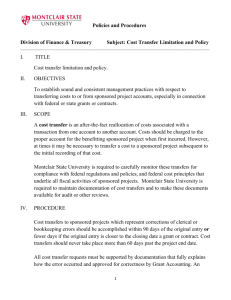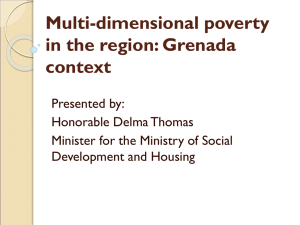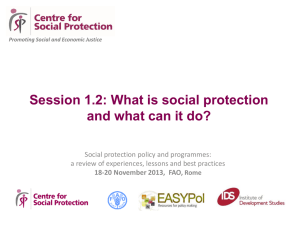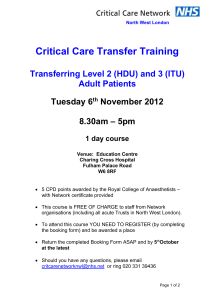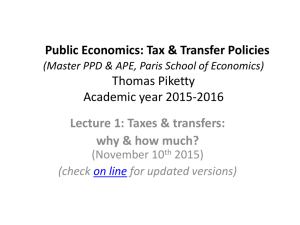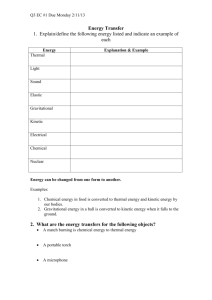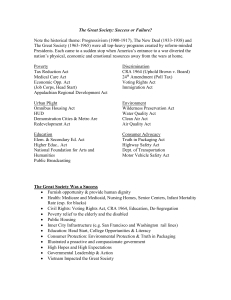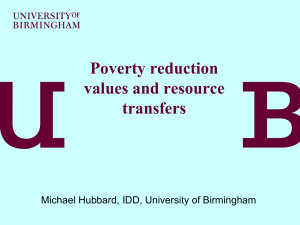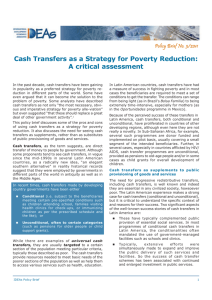Prezentacja programu PowerPoint
advertisement
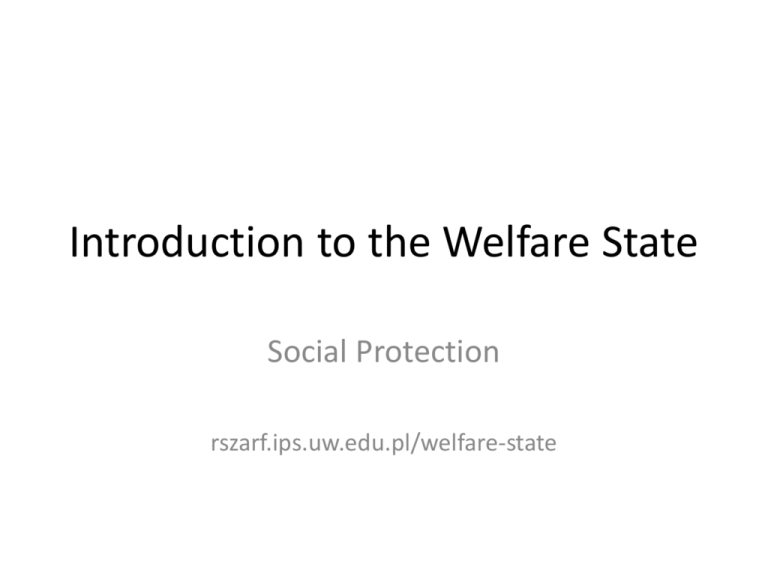
Introduction to the Welfare State Social Protection rszarf.ips.uw.edu.pl/welfare-state Social Security and Social Assistance Charter of Fundamental Rights of European Union Article 34 Social Security and Social Assistance Two slightly different ways of saying the same Social protection is social security and social assistance OR Social security is social insurance and social assistance Social Protection Floor Integrated social policies to protect and empower people across the life cycle Social protection floor for a fair and inclusive globalization, ILO, 2011 Three core functions of a social protection system • Protecting income and consumption in the face of shocks such as disease, unemployment, or disa bility in old‐age; • Combating poverty and deprivation by ensuring access to a basic set of goods and services; • Improving individuals' earnings opportunities by promoting investments in human capital, giving access to credit, and making labor markets (which are the main source of income for most people) work better. D.A. Robalino et al. Building Social Protection and Labor Systems: Concepts and Operational Implications, 2012 R. Holzmann, V. Kozel, The Role of Social Risk Management in Development: A World Bank View, IDS Bulletin, 2007 A Conceptual Framework for Social Protection R. Sabates-Wheeler, S. Devereux, Social Protection for Transformation, IDS Bulletin 2007 Different Actions Related to Risk and Vulnerability T. Voipio, Social Protection for Poverty Reduction: The OECD/DAC/ POVNET View, IDS Bulletin 2007 A Conceptual Framework for Social Protection Ribe et al., From Right to Reality: INCENTIVES, LABOR MARKETS, AND THE CHALLENGE OF UNIVERSAL SOCIAL PROTECTION IN LATIN AMERICA AND THE CARIBBEAN, 2012 Linkages between Basic Types of Instruments and Risks/Shocks Note: Transfers can be conditional or unconditional. Conditional transfers include payments for participation in pu blic works. In a more general classification, they would also include wage subsidies, which are paid conditional on work. Access to services includes non‐cash support such as counseling or intermediation or activities linked to imp roving access to health and education services. D.A. Robalino et al. Building Social Protection and Labor Systems: Concepts and Operational Implications, 2012 Levels of Integration/Coordination within an SP&L System SP&L - Social protection and labor D.A. Robalino et al. Building Social Protection and Labor Systems: Concepts and Operational Implications, 2012 Types of Cash Transfers Integrated Social Protection Systems: Enhancing Equity for Children, UNICEF, 2012 In-kind vs Cash Transfers Integrated Social Protection Systems: Enhancing Equity for Children, UNICEF, 2012 Criteria for choosing between conditional and unconditional transfers N. Freeland, Superfluous, Pernicious, Atrocious and Abominable? The Case Against Conditional Cash Transfers, IDS Bulletin, 2007 How Minimum Income Works? W. Beckerman from C. Behrendt, At the Margins of the Welfare State, Ashgate, Aldershot, 2002 Effectiveness of transfers can be measured as the ratio of prevented poverty and the pre-transfer poverty Efficiency of transfers can be measured as the ratio of transfers that actually help to lift the poor out of poverty as a proportion of the total resources spent effectiveness = efficiency = C (A + C) C (B + C) How minimum income works? Alleviation of income poverty by social transfers C. Behrendt, At the Margins of the Welfare State, Ashgate, Aldershot, 2002 Conditions of effectiveness of minimum income C. Behrendt, At the Margins of the Welfare State, Ashgate, Aldershot, 2002 Work, social protection and inclusion/exclusion INCLUSION Decent work Social insurance Social asisstance Insufficient protection EXCLUSION Non take-up: I am poor and I have right to benefit but I don’t claim it Non coverage: I am poor and I claimed benefit but it was refused to me Third possibility: I am poor, I claimed benefit and got it but I am still poor Ides Nicaise et al. Gaps, traps and springboards in the floor of social protection systems: A comparative study of 13 EU countries , 2004
